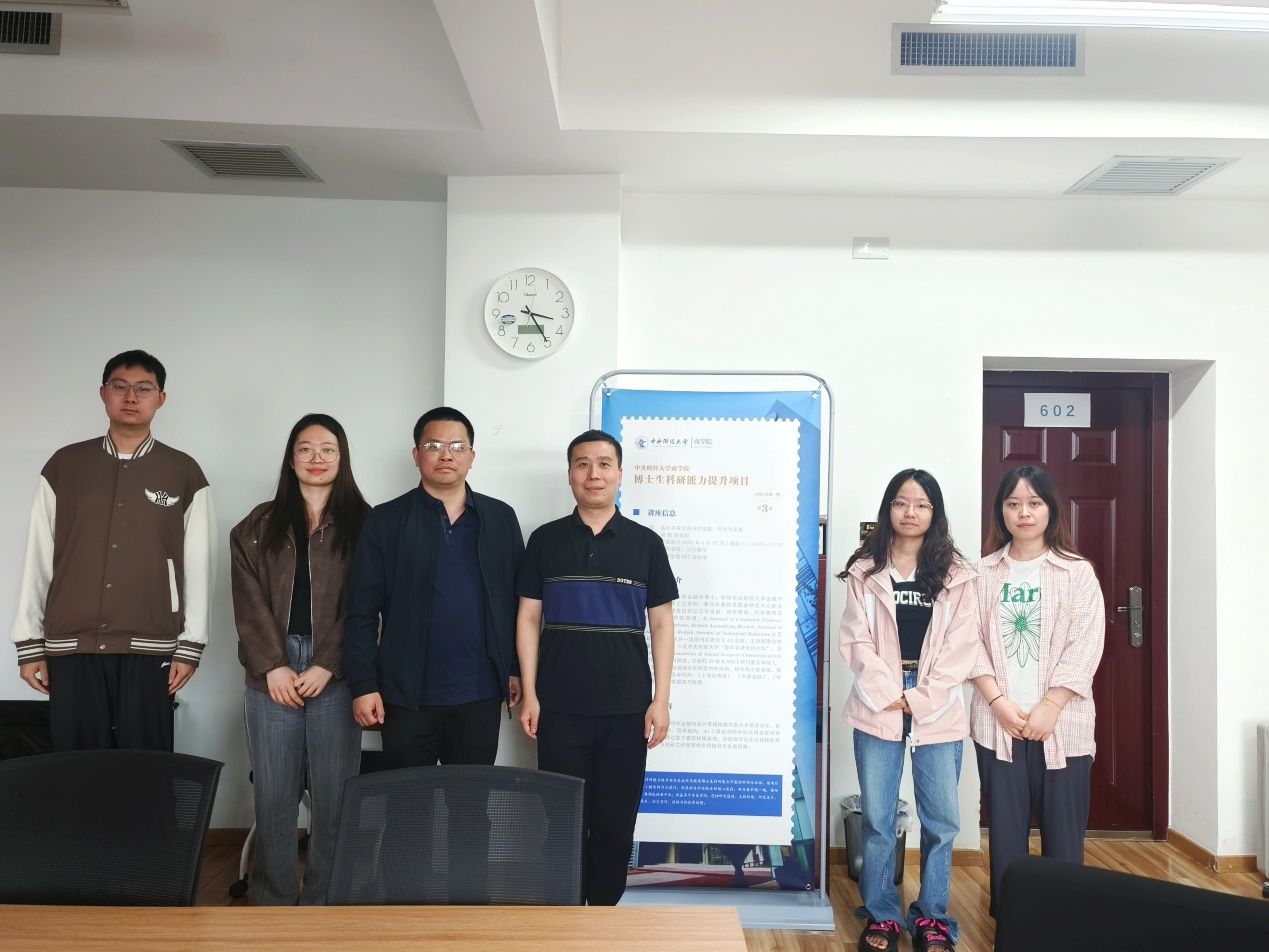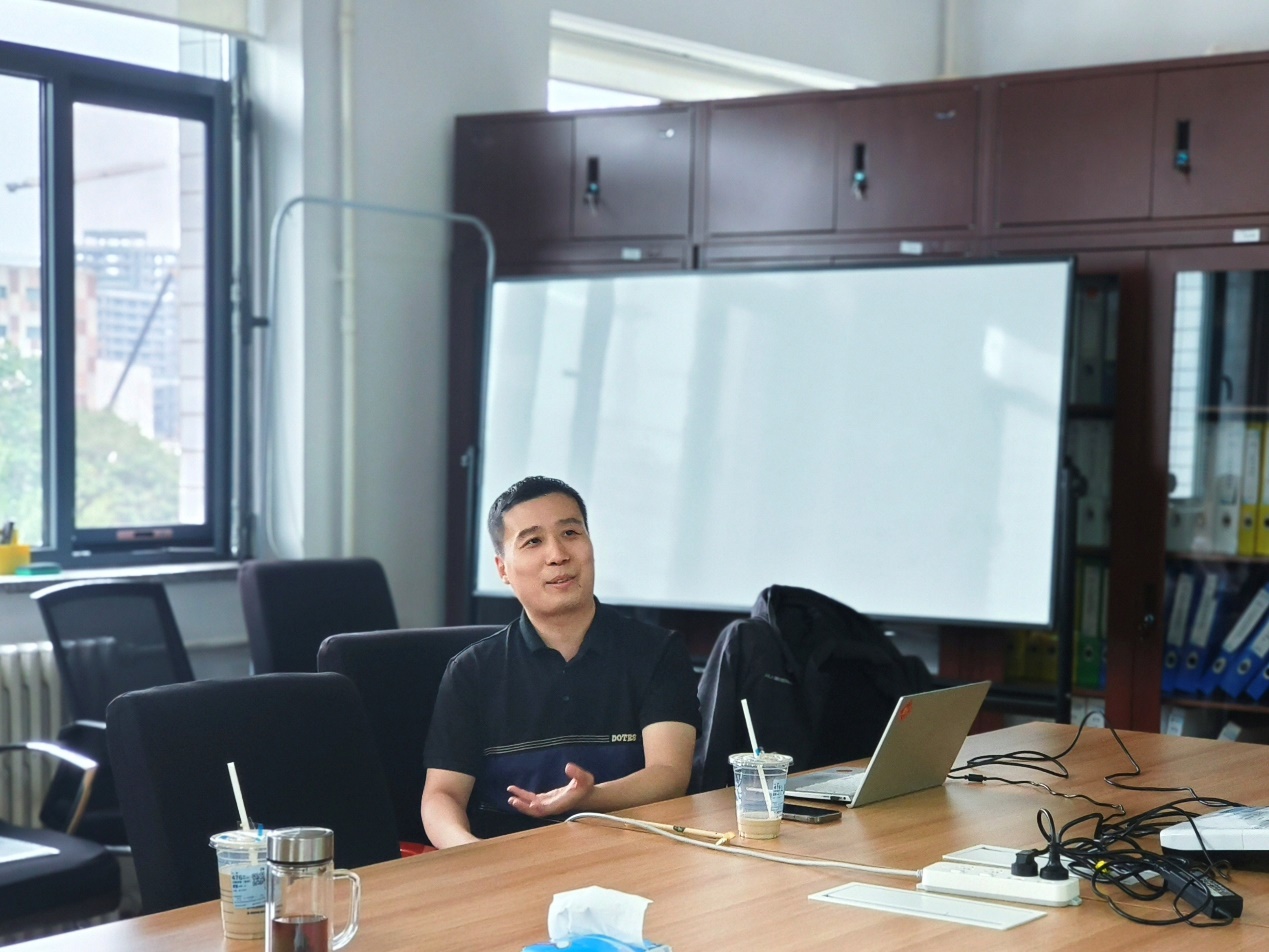CUFE Business School held the third lecture of the first session of its 2025 Doctoral Research Capacity Enhancement Project in Conference Room 602 on the afternoon of May 22, 2025. Prof. Wu Kai from CUFE Finance School served as the guest speaker and shared his insights on writing and submitting financial and accounting research papers in English. The event was attended by some doctoral students from the Business School and was organized by Prof. Dou Chao, the director of the doctoral program at the Business School. The Doctoral Research Capacity Enhancement Project is a signature initiative launched by the Business School to boost doctoral students' research skills. It adopts a "lecture + coaching" model and covers all core aspects of academic research. The project runs on a yearly cycle, with each session comprising multiple lectures across various fields, including research topic selection, literature review, research design, methodology, paper writing, submission, and revision.

The lecture was chaired by Prof. Dou Chao, who began with a brief introduction of the guest speaker, Prof. Wu Kai. holds a Ph.D. in Finance from Cornell University. He is currently a tenured Prof. and doctoral supervisor at the School of Finance, CUFE, and serves as the deputy director of the Private Equity Investment Fund Research Center. His research focuses on empirical corporate finance, innovation management, risk management, and the application of artificial intelligence in finance. He has published over 40 papers in top domestic and international journals, including the Journal of Corporate Finance, Nature Communications, British Accounting Review, Journal of Financial Stability, British Journal of Industrial Relations, and Financial Research. Prof. Wu Kai has led research projects funded by the National Natural Science Foundation of China and has been selected for CUFE's "Young Scholar Support Program." He is also an editorial board member of several international journals, including Humanities & Social Sciences Communications, a Nature journal, and serves as an anonymous reviewer for over 20 SSCI journals. His research findings and policy recommendations have been adopted by the General Office of the State Council and the Central Committee of the China Association for Promoting Democracy. His viewpoints have been reported and reprinted by major media outlets in the US, Germany, and other countries, as well as domestic media such as Global Times, Shanghai Securities News, China Finance, and Huaxia Times.

Prof. Wu Kai provided a systematic introduction to writing high-level English language papers in the fields of finance and accounting. He covered topics such as research topic sources and principles, writing structure, the application of AI tools in research, and strategies for responding to reviewers' comments. Regarding topic selection, Prof. Wu Kai highlighted diverse sources of research ideas, including literature accumulation, data-driven insights, conference exchanges, extensions of previous research, and suggestions from collaborators. He also emphasized several key principles for selecting research topics, such as building a research system, in-depth exploration, cross-field expansion, and aligning with research trends. On writing, Prof. Wu Kai offered valuable advice on chapter organization, empirical results, chart creation, and English language polishing. Regarding AI-enabled financial research, Prof. Wu Kai explored how generative AI can boost research innovation. He shared practical applications of AI in forming research hypotheses, designing research frameworks, data processing and analysis, text mining, and journal selection. Through real-world examples, he demonstrated AI's potential in enhancing research efficiency and innovation.
During the Q&A session at the end of the lecture, Prof. Wu Kai patiently answered questions from the doctoral students in attendance and further shared specific strategies for applying AI technology in research based on his personal experience. The lecture was rich in content, featuring novel viewpoints, clear logic, and strong practical relevance. It provided a detailed demonstration of the entire process of a paper from its initial draft to acceptance through multiple real-submission cases. This offered practical guidance and publishing insights for researchers. Faculty and students who attended the lecture unanimously agreed that the content addressed key research challenges and held significant learning and practical value. The continuous organization of such lecture series by the Business School can effectively help doctoral students broaden their academic horizons, enhance their research literacy, and lay a solid foundation for their future research endeavors.